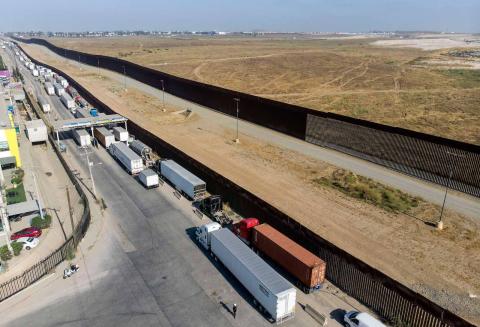When the economy is going well, we talk about the bright future. Why is it only when it is going bust that we look to the past?

The Economist recently published an interesting article on the resurgence of economic history after the global financial crisis. No-one who reads about the international economy would have been surprised to see the headline 'Long Live Economic History', given the success of authors the likes of Barry Eichengreen and Thomas Piketty. Eichengreen uses his extensive knowledge of the Geat Depression to shed new light on the 2008 crisis in his book Hall of Mirrors. Piketty's unique contribution to the study of inequality in Capital in the Twenty-First Century lies in the use of tax records from the 19th and 20th centuries.
It is not only the global financial crisis that has warranted historical treatment. Charles Kindleberger's 1978 book Manias, Panics, and Crashes, about speculative market bubbles, was revised and reprinted in 2000 after the end of the dot com boom. In the ABC program Making Australia Great, which aired last month, George Megalogenis used the example of the collapse of Melbourne's economic boom in the late 1800s to warn Australians not to waste the fruits of the economic growth of the last 25 years.
What makes this trend so interesting is that the disciplines of economics and history make strange bedfellows. [fold]
At their worst, economists pursue ahistorical models that are supposed to hold eternally across time and place, whereas historians tell us 'history never repeats itself' and present past events as contextually bounded and therefore without comparison. Since the 1970s the social sciences have been fragmented, with post-modernism and post-structuralism producing a shift in history towards cultural and micro-history, while economics has moved in the opposite direction towards neoliberal orthodoxy and imitating the rigour of the hard sciences. The self-imposed exile of economics from the other social sciences has led to the criticism that economists reject interdisciplinary approaches.
However, the best economic history illuminates contemporary problems and offers practical solutions. Good writers of economic history demonstrate a strong grasp of technical economic concepts and a knowledge of historiography.
In the opening session of the annual conference of the New Institute for Economic Thinking held in Paris earlier this month, leading macroeconomists talked about how they found themselves re-reading Hayek, Keynes, and Friedman & Schwarz when grappling with the causes of the global financial crisis. This is not to say that there is nothing new in economic thinking, but rather that economists benefit from taking a long-term perspective.
While the effects of the global financial crisis are still being felt all over the world, a silver lining of the crisis would be a continuing interest in economic history so that we ensure we do not forget the economic mistakes of the past.
Photo courtesy of Flickr user C. Thomas Anderson.
